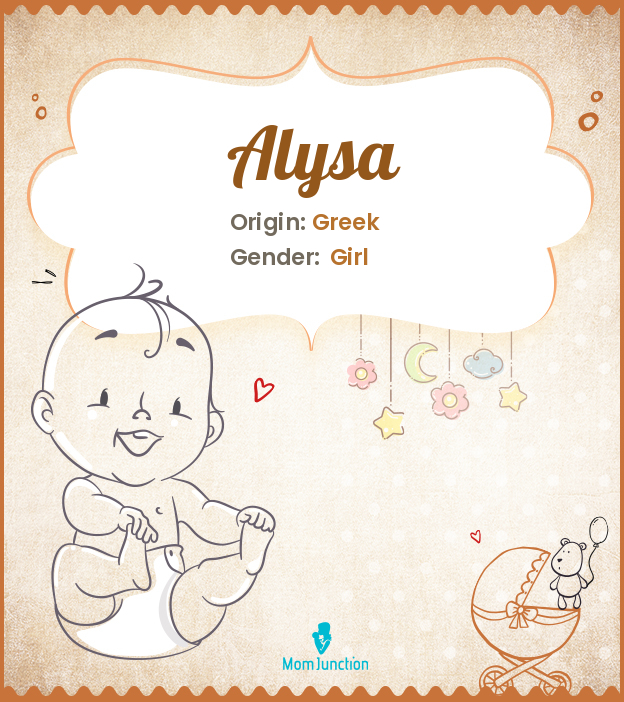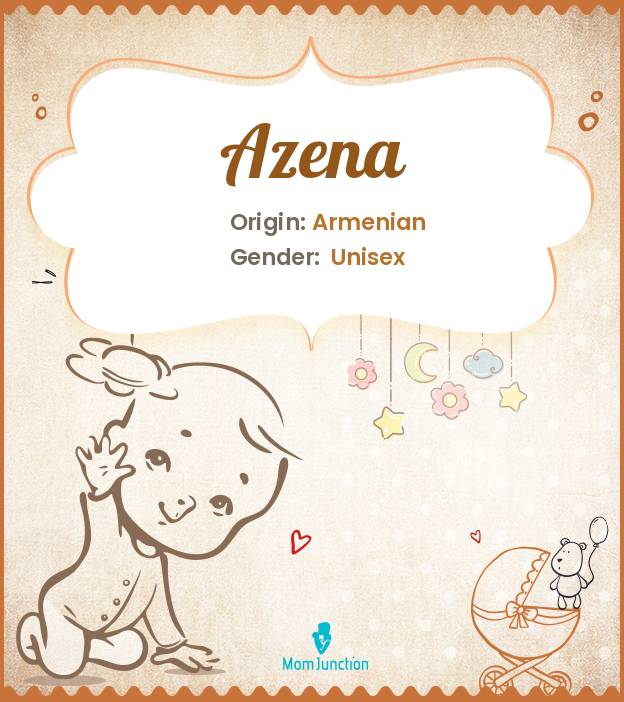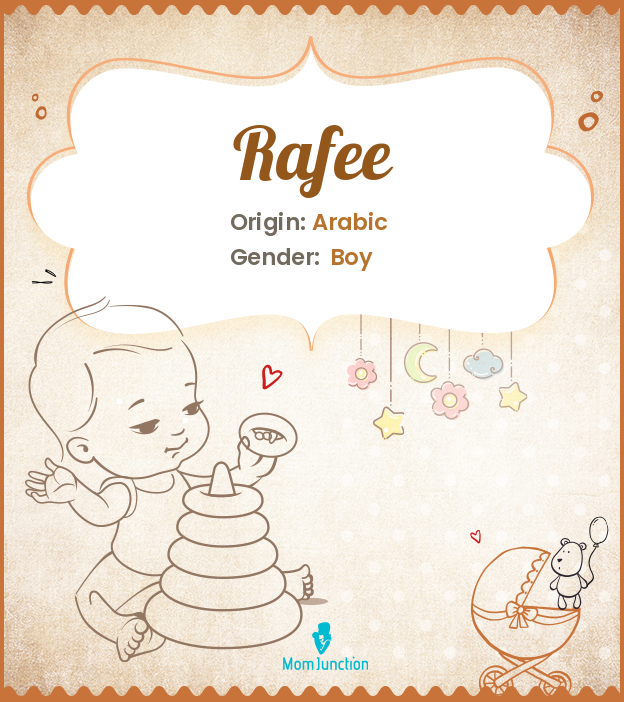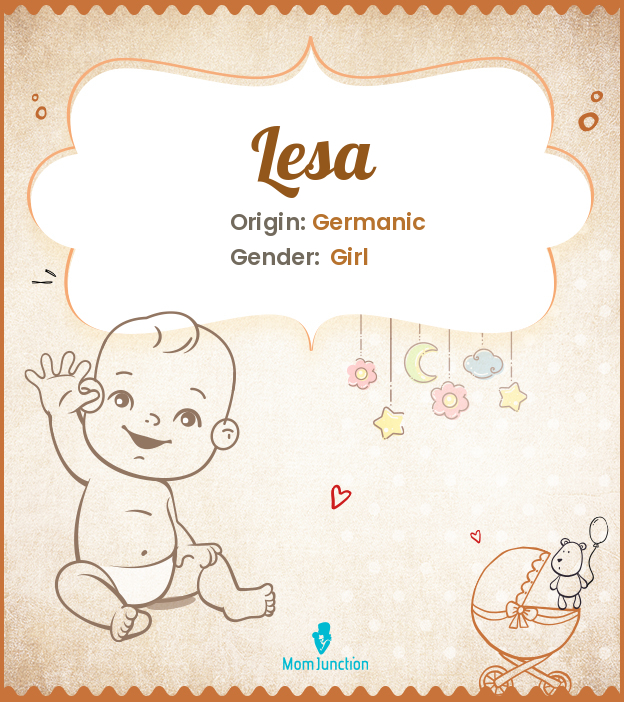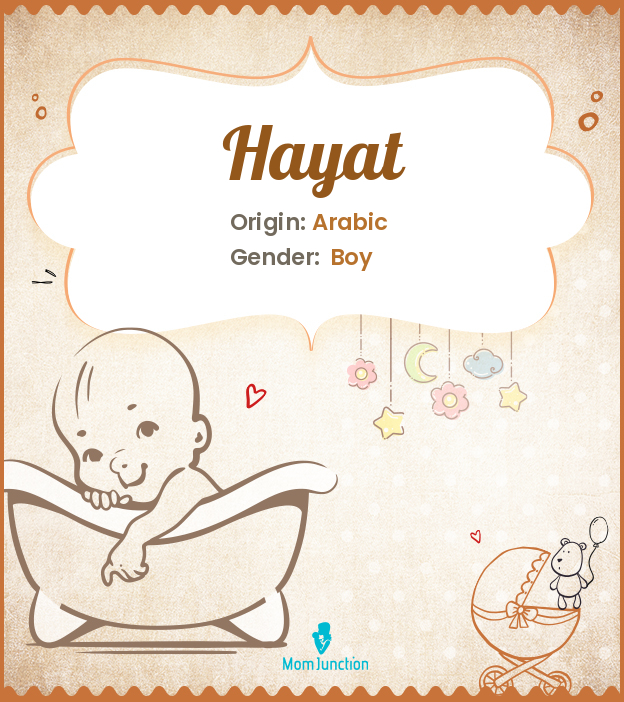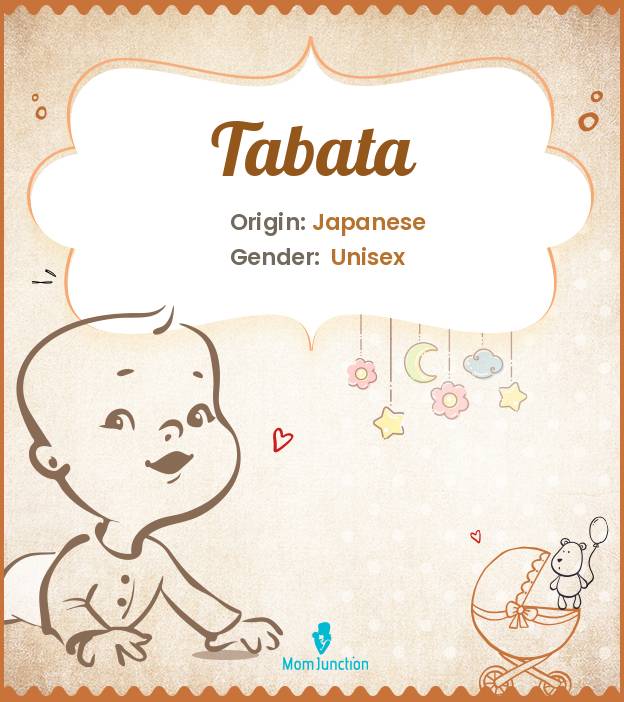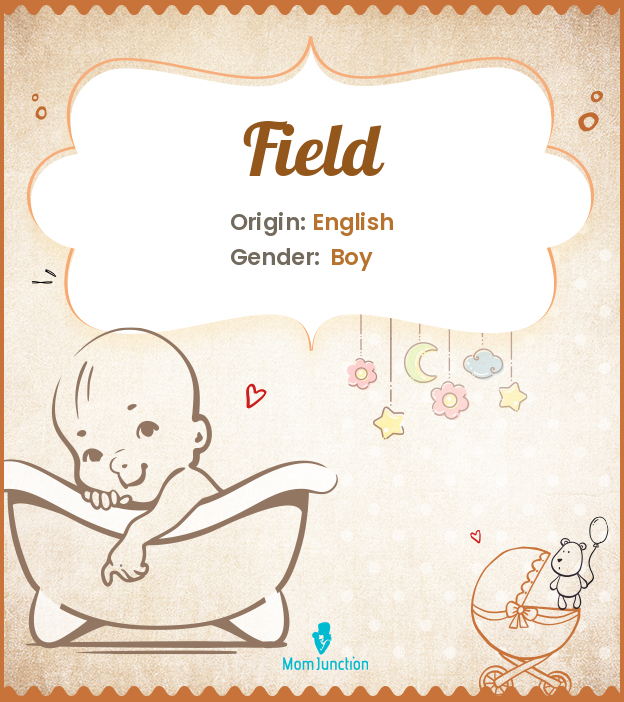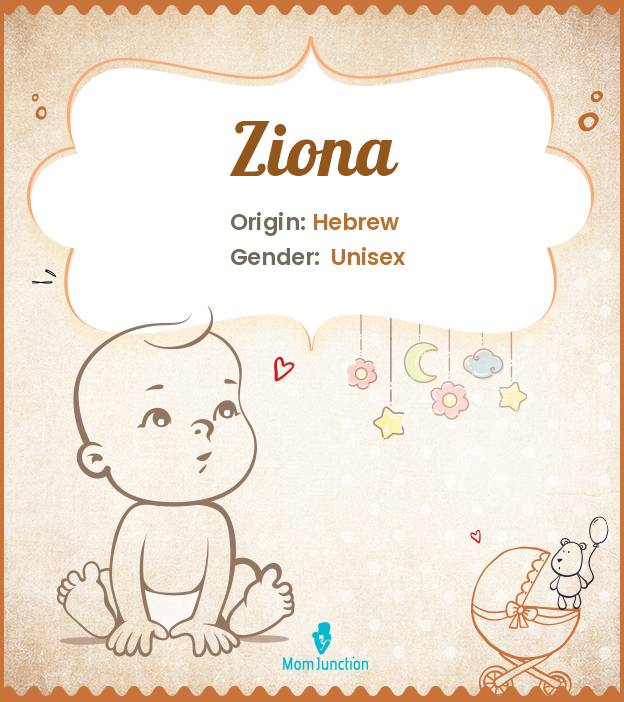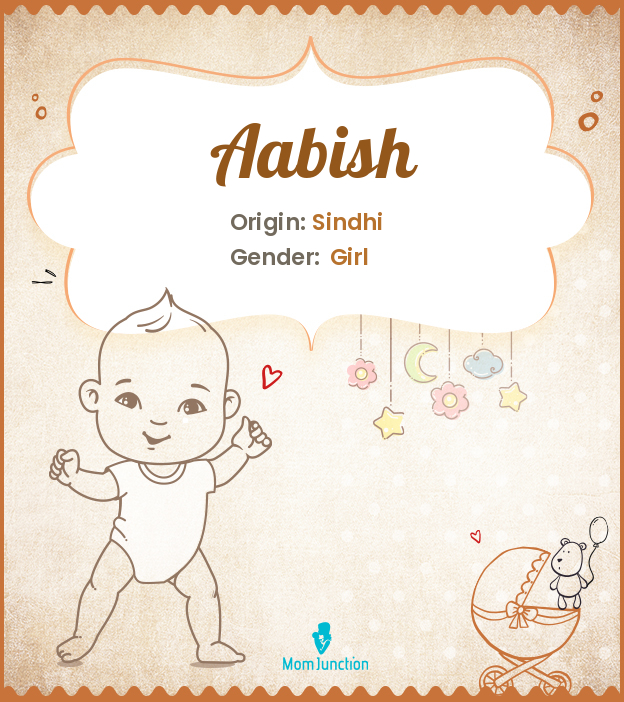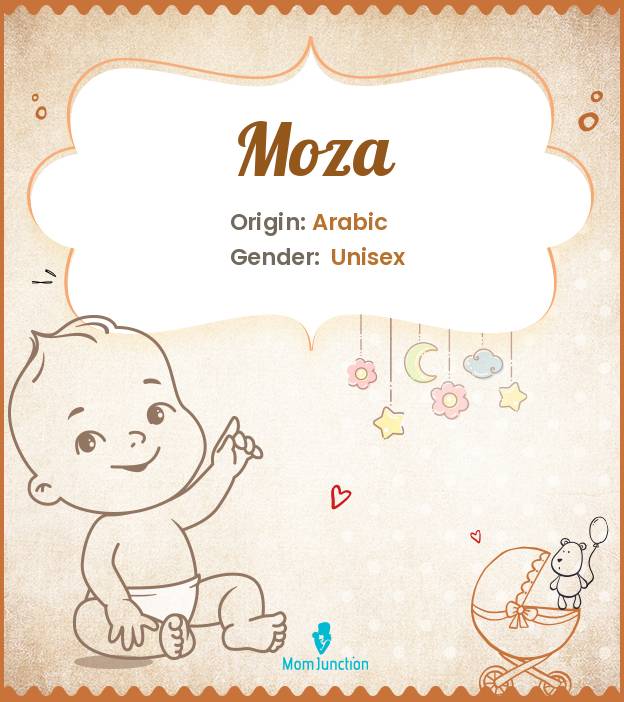217 Norse Baby Boy Names With Meanings
A collection of timeless and elegant names for your endearing little king.
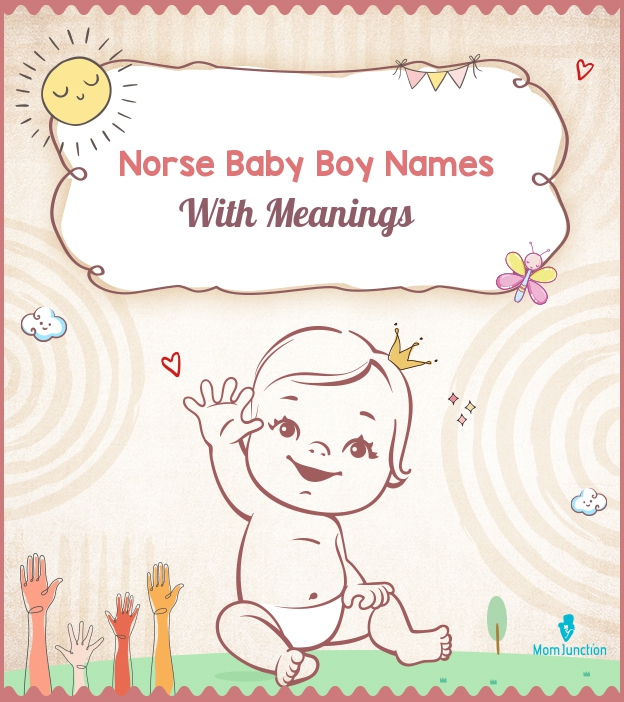
Illustration: MomJunction Design Team
Norse boy names emerge from an intriguing history closely connected to Scandinavia's Viking Age and also encompass names from modern-day Norway, Sweden, and Denmark. The Norse, known as Vikings, were skilled seafarers from northern Europe. They undertook daring voyages to America centuries before other Europeans (1).
One of the primary reasons parents opt for Norse names is their distinctiveness. In a world where popular names often abound, parents desire to bestow their children with a moniker that sets them apart. Norse names are integral to the Viking legacy, carrying a profound historical, cultural, and mythological significance. The Old Norse language and its rich pool of names provide a glimpse into the values, traditions, and beliefs of the Norse people.
Numerous Norse names were influenced by powerful gods, goddesses, and mythical entities. Names like Thor were popular, representing the god of thunder and power. In Norse society, animal names were also widely favored. It was quite common to encounter Vikings bearing names such as Orm, meaning 'serpent,' and Ingolf, meaning 'wolf.'
The patronymic naming system was employed throughout Scandinavia, where an individual's family name was derived from their father's first name, along with a suffix denoting their gender. This method facilitated the identification of a person's father; for instance, a man named Johannes Andersen was the son of Ander, and Maria Olofsdatter was the daughter of Olofs.
The popularity of Norse names experienced fluctuations over time, but they endured as an integral part of Norse identity and culture. In the modern era, Norse names have enjoyed a revival in popularity due to a resurgence of interest in Viking history, mythology, and popular media portrayals. As a testament to their enduring appeal, Norse names continue to captivate parents seeking meaningful and powerful appellations for their children, reaffirming the lasting impact of the ancient Norse civilization on modern naming practices.
| Name | Gender | Meaning | |
|---|---|---|---|
| | The victory of thunder God | ||
| | The courage of thunder God | ||
| | The mind or thunder God | ||
| | The rule of thunder God | ||
| | A male descendant of Thor | ||
| | The power of thunder God | ||
| | A trustworthy or a safe person, a true person | ||
| | One who is growing, ascending, and increasing | ||
| | Refers to scream or shout | ||
| | An experienced and passionate individual | ||
| | God of war and justice | ||
| | Ruler of power and protection | ||
| | Warrior goddess | ||
| | Victorious, strong, noble | ||
| | Warrior; defender | ||
| | Titanic Norse primordial deity | ||
| | Unique; Powerful; Mysterious | ||
Norse boy names boast a riveting history tied to the fierce Viking Age in northern Europe. Brace yourself for names like Alvis, Gandalf, and Odin, drawn from epic Norse mythology, and trendy animal-inspired picks. The patronymic naming system adds an extra layer of heritage to these names, tracing back to ancestral lineage. Despite fluctuations in popularity, Norse names are enjoying a resurgence thanks to renewed interest in Viking culture.
Infographic: Captivating Norse Baby Boy Names With Meanings
Embark on an enthralling journey into the mystical world of Norse boy names and bestow your son with a name that resonates with the ancient Viking legacy. Norse names hold a deep-rooted historical, cultural, and mythological significance, making them an integral part of the Viking heritage. Check out the infographic below for names that represent strength and valor. Pick your favorite for your adorable little hero. Illustration: Momjunction Design Team
Frequently Asked Questions
1. What is the meaning of the Norse name ‘Thor’?
The name Thor is derived from an Old Norse word meaning thunder, which ultimately comes from the Proto-Germanic *Þunraz. In Norse mythology, Thor is the son of Odin and the god of thunder, the sky, and agriculture. He is the husband of Sif and the defender of Asgard and Midgard. Thursday is dedicated to Thor (2).
2. What are some Norse baby boy names that have positive or virtuous meanings?
There are several masculine Norse names with positive and virtuous meanings. Magni is a Norse mythological name meaning power or strength, Bendik is a Norwegian name meaning blessed, and Felix means lucky or successful.
3. Which Norse baby boy names mean strong, victory, and wolf?
There are several names with these meanings. Norse baby boy names that mean strong include Gabriel meaning God is my strong man, Njord meaning strong, vigorous, and Magni meaning power, strength. Next, the Norse baby boy names meaning victory are Sigmund, meaning victory and protection, Sigurd meaning victory and guard, and Signý meaning victory and new. Meanwhile, Norse baby boy names like Ingolf combine the name of the Germanic god Ing with wolf, Adolf meaning noble wolf, Fastúlfr meaning solid and wolf, and Hróðulfr meaning praise, fame and wolf are some examples of names meaning wolf.
4. Can you provide some examples of Norse baby boy names with historical significance?
Norse baby names like Erik (inspired by Erik the Red, who founded the first European settlement in Greenland), Leif (inspired by Leif Erikson, who was the first European to set foot on North America), and Olaf (inspired by Olaf II Haraldsson or Saint Olaf who was the King of Norway) have historical significance.
References
- The Beginning of the Viking Age in the West.
https://link.springer.com/article/10.1007/s11457-018-9221-3 - Thor
https://www.worldhistory.org/Thor/
Look Up For Many More Names
Do you have a name in mind and want to know more about it? Or want to find names belonging to a particular origin, religion, or having a specific meaning? Use our search tool below to explore more baby names with different combinations.









